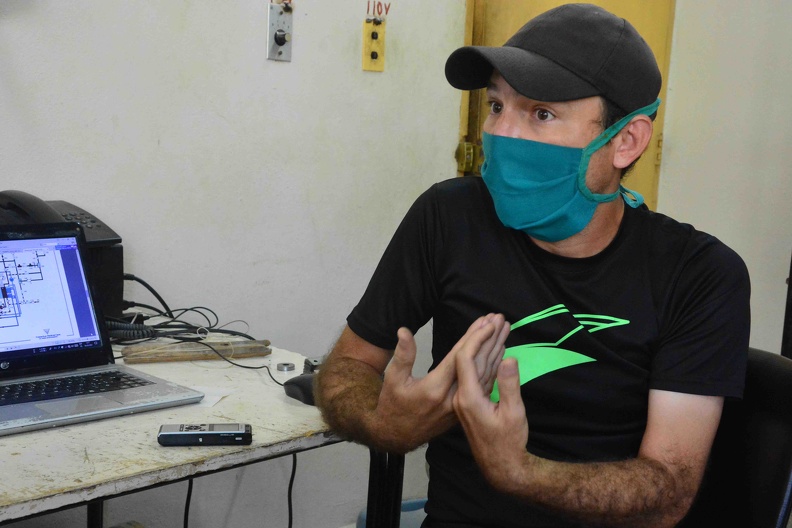There is fear, but it cannot be left to us that someone can not receive a service, that is unforgivable, said engineer Sandy Escobar Yero, one of the eight electromedical engineers in the province of Granma ready to work in the red zone before problems with equipment used in the care of patients with COVID-19.
You feel fear not only personally, but because of the possibility of infecting your colleagues and loved ones, like my 65-year-old mother; however, if our task is to keep the equipment operating, we do it.
With more than a decade of experience in several branches of Electromedicine, he assured that the decision to enter high-risk places responds, first, to his condition as a Cuban, since we Cubans help each other.
The second reason bases on the fact that we are talking about people, who also feel, suffer, have families, children, fathers and mothers, because they deserve all the attention.
Helping another human being is one of the most important values that Fidel Castro taught us; to do good without expecting anything other than the satisfaction of the duty accomplished, Escobar Yero stated.
Today, we are eight, but from the beginning the willingness of many colleagues was clear, and in the face of the challenge, the watchword is to take care of ourselves through the correct use of masks, gloves, sterile clothing and other required means of protection, he added.
Both because of the risks that the new SARS-CoV-2 coronavirus now implies, as well as against many germs and diseases, professionals in the field are always exposed to epidemiological risks; hence the main rule of self-care, stressed Vladimir Ramírez Hernández, director of the Provincial Center of Electromedicine in Granma.
For this, they also have saline solutions and alcohols to be used in the disinfection of hands, instruments and equipment before and after working, and that experience has allowed us to avoid infections despite the fact that several were already in the red zone.
The members of the so-called rapid response brigade, he said, were trained on protocols to be respected in such situations, and previously they underwent physical and blood tests, to ensure that they do not have underlying conditions for which they could be most vulnerable to the pandemic.
Along with their valuable and anonymous work in Cuba, currently 63 electromedical engineers from the territory carry out internationalist missions in countries such as Algeria, Angola, South Africa, Haiti, Venezuela and Saint Lucia, including six members of the Henry Reeve Medical Brigades, who support the fight against COVID-19 in different nations, he added.

